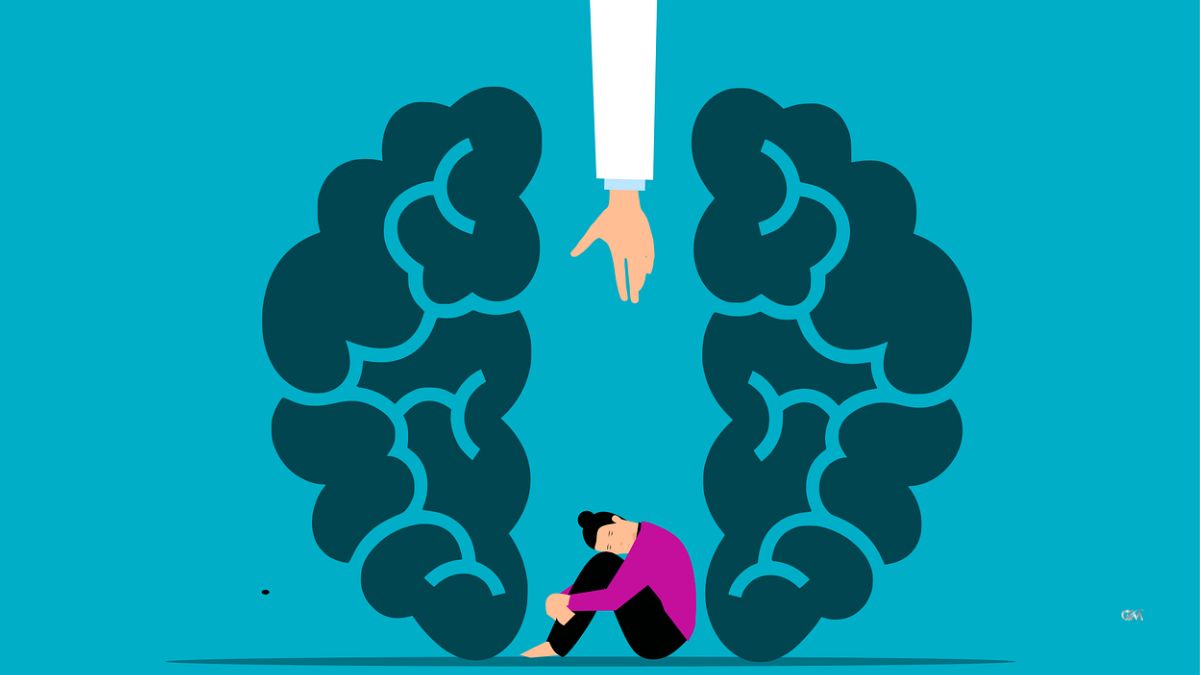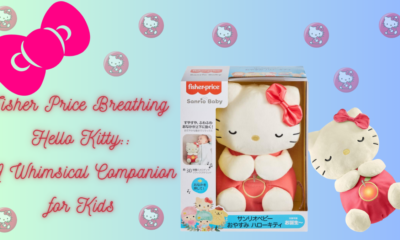Health & fitness
Unexpected Kitchen Threats You Should Know for Your Safety

Unexpected Kitchen Threats: Kitchens are meant to be the heart of our homes, full of yummy meals and good times. However, it’s important to recognize that these warm spaces are also fraught with unexpected dangers.
NFPA research says that, on average, cooking causes 158,400 home fires per year. These accidents result in 470 civilian deaths and 4150 injuries annually. Even stuff we use all the time, like those Instant Pots, comes with risks most people never think about. Dull knives, a damp floor, even the food in your fridge – stuff you wouldn’t think twice about can lead to some nasty burns, and even worse.
It’s easy to get complacent in the kitchen, but a little extra caution makes a huge difference. Knowing these surprising risks – and how to avoid them – is how you protect yourself (and your loved ones) in this busy room. Let’s dive into those kitchen dangers so you can cook and eat worry-free.
Uncommon Kitchen Hazards You Need to Be Aware Of
When Cooking Appliances Attack
We rely on kitchen appliances for everything from our morning coffee to whipping up dinner. But even those helpful gadgets can pose risks. For instance, Instant Pots, while popular, can malfunction in ways that cause serious burns. Their internal temperature can reach up to 250 degrees Fahrenheit! While brands claim their products have safety features, many people report defective Instant Pots have led to explosions.
Victims of Instant Pot explosion incidents often suffer severe injuries, including eye damage and third-degree burns on the hands, wrists, and chest. These incidents highlight the negligence of companies that put profits ahead of consumer safety. People seriously injured due to defective Instant Pots have every right to file lawsuits. These lawsuits seek financial compensation for their injuries, pain, and suffering.
The sheer number of recalls underscores the problem. According to TorHoerman Law, manufacturers recalled numerous pressure cookers, Instant Pots, and similar devices between 2015 and 2021 due to safety concerns.
While recalls address some issues, it’s wise to be cautious with any appliance that traps heat and steam. If something seems off – strange noises, leaks, etc. – turn it off and unplug it immediately.
A Dull Knife Is a Dangerous Knife
It might seem counterintuitive, but dull knives are far more dangerous than sharp ones. When a blade is dull, it requires more force to cut, increasing the risk of it slipping and causing a serious injury. In fact, over 33% of kitchen-related injuries involve knives!
Sharp knives, on the other hand, slice effortlessly. This gives you greater control and precision. Regular sharpening is a key part of kitchen safety. Choosing the right cutting board is equally important. Soft surfaces can cause a blade to slip, while glass boards will quickly ruin the edge of your knives.
Hazards Around Heat
Open flames are an obvious kitchen danger, but heat-related risks extend far beyond those. Glass dishes, surprisingly, pose a hidden threat. A US study found they account for 52% of microwave-related hazards. This is often due to thermal shock – sudden temperature changes can cause glassware to shatter. Check that dishes are microwave-safe, and avoid using any with cracks or chips.
Grease fires also happen in the blink of an eye. Hot pans and cooking oil are the perfect recipe for disaster. If faced with a grease fire, the worst thing you can do is add water. Instead, immediately cut off the heat source. Then, smother the flames with a lid, baking sheet, or a large amount of salt.
Slips, Trips, & Spills
Your kitchen floor can quickly become a hazard zone. Even a tiny spill of water or cooking oil creates a major slip risk. Wet floors near hot appliances are especially dangerous, as falls can lead to both burns and injuries.
But it’s not just spills that cause trouble. Watch out for dropped ingredients, loose mats, and anything left in walkways. These tripping hazards can cause unexpected falls. Smart storage is key to preventing these accidents. Ensure everything has its designated place, so items aren’t left out where they can be overlooked.
When Good Food Goes Bad
You might think cookie dough or cake batter is a harmless treat, but think again. Raw flour can contain harmful bacteria like Escherichia coli and Salmonella, which can cause serious food poisoning. These bacteria can get into the flour while growing in the field or being prepared.
This risk surprises many, highlighting how widespread the issue of food poisoning is. The CDC estimates a staggering 48 million cases occur in the US each year. Sadly, even meals lovingly prepared in home kitchens can become unsafe if not handled properly. This includes things like undercooked meats, unwashed produce, or leftovers left out too long at room temperature.
Conclusion
The kitchen is meant to be a happy place, but it can also be your ticket to the hospital. A little extra mindfulness protects you and those you love. Knowing the above hidden dangers isn’t meant to scare you, but to empower you. Simple changes make a big difference. If basic precautions fail, and an injury happens due to a faulty product, it’s good to know you have options.
FAQs
Q: What Is the Most Obvious Danger in the Kitchen?
The most obvious danger in the kitchen is likely burns. Stoves, ovens, and even hot liquids can cause serious injuries. Be aware of the heat sources around you. Use pot holders or oven mitts whenever handling hot items. Avoid leaning over pots or pans while cooking, especially when there’s steam present. Steam can scald just as easily as direct contact with a hot surface.
Q: How Can Unexpected Kitchen Hazards Be Prevented?
Unexpected kitchen hazards can often be prevented with vigilance and proactive measures. Maintain a clean kitchen to prevent accidents. Wipe up spills immediately to avoid slips and falls. Keep floors dry and free from clutter that can cause trips.
Q: How Do I Stop Kitchen Slips?
To stop kitchen slips, focus on the floor itself and your actions. Keep floors clean and dry by wiping up spills immediately and mopping regularly. Use non-slip mats in areas prone to spills or water, like near the sink or dishwasher. Invest in shoes specifically designed for kitchen work, ensuring they have good grip and support.
Q: Is Kitchen Safety Important?
Yes, kitchen safety is crucial. The kitchen is full of potential hazards, from sharp knives and hot surfaces to electrical appliances and cleaning chemicals. A few moments of carelessness can result in serious injuries like cuts, burns, or even fires.
Health & fitness
How to Build a Support System for Mental Health Recovery

Mental health recovery is a journey that can be challenging, but it doesn’t have to be faced alone. A strong support system is one of the most crucial elements in helping individuals navigate through mental health challenges and work towards recovery. Whether you’re struggling with anxiety, depression, or another mental health condition, surrounding yourself with understanding and supportive people can make a significant difference in how you cope and heal.
In this article, we will explore why a support system is vital for mental health recovery, how to build one, and the different types of support that can help you on your journey to wellness.
Why a Support System Matters in Mental Health Recovery
Mental health conditions can often lead to feelings of isolation, making it harder to cope with day-to-day challenges. Having a support system helps break down this isolation by providing emotional, practical, and even professional assistance. Studies show that people with strong support networks are more likely to experience better mental health outcomes and maintain long-term recovery. For instance, according to a study published in the *Journal of Mental Health*, **individuals with strong social support** are **50% more likely to recover from depression** than those without support .
1. Emotional Support
The presence of caring friends, family members, or peers allows individuals to express their feelings and fears without judgment. Simply knowing that someone is there to listen can provide a sense of comfort and relief, helping to reduce anxiety and stress.
2. Practical Support
Support systems also offer practical help, which can range from assisting with daily tasks to helping navigate treatment options. For someone in recovery, this practical support can ease some of the burdens that come with managing a mental health condition, allowing them to focus more on their well-being.
3. Accountability and Encouragement
A support system can help hold you accountable in your recovery, gently encouraging you to stick to your treatment plan, attend therapy sessions, or engage in healthy behaviors. Sometimes, just knowing that someone is rooting for your success can provide the motivation needed to keep moving forward.
Steps to Building a Strong Support System
Building a support system is not something that happens overnight, but with some effort and openness, it’s possible to create a network of individuals who genuinely care about your mental health.
1. Identify Your Current Network
Start by assessing the people who are already in your life. Family members, friends, coworkers, or even neighbors could be potential sources of support. Think about who in your current network has shown understanding, compassion, and a willingness to help you during tough times. These are the people you’ll want to involve in your support system.
It’s okay if your existing circle is small—quality matters more than quantity when it comes to building a support system. Focus on individuals who make you feel safe, heard, and valued.
2. Communicate Your Needs
Once you’ve identified the people you want in your support system, it’s important to communicate your needs. Many people may not know how to support someone with mental health challenges unless you tell them. Be clear about what you need, whether it’s someone to talk to, a person who can accompany you to appointments, or simply a friend to spend time with when you’re feeling down.
It might feel uncomfortable at first, but expressing your needs helps set expectations and gives people the opportunity to support you in meaningful ways. For example, you might say, “I’ve been feeling really overwhelmed lately, and it would help if I could talk to someone when I’m having a rough day.”
3. Join Support Groups
Sometimes, friends and family may not fully understand what you’re going through. Joining a mental health support group can provide an opportunity to connect with others who are facing similar challenges. These groups offer a safe space to share experiences, receive advice, and offer encouragement.
There are many different types of support groups available, both in person and online. According to the National Alliance on Mental Illness (NAMI), support groups help individuals feel less isolated and more empowered in their recovery process. Online platforms like Reddit, Facebook groups, and apps like 7 Cups offer spaces where you can join virtual communities focused on mental health support.
4. Seek Professional Help
In addition to social support, professional help is a critical part of any support system for mental health recovery. This includes therapists, counselors, psychiatrists, or social workers who are trained to help individuals manage mental health conditions. Professionals provide specialized treatment, such as cognitive-behavioral therapy (CBT) or medication, that can complement the emotional and practical support you receive from your network.
Don’t hesitate to lean on your therapist or healthcare provider as part of your support system. They are there to guide you through difficult times and ensure you’re on the right path to recovery.
5. Engage in Mutual Support
Building a support system is a two-way street. Offering support to others can be just as rewarding as receiving it. Engaging in mutual support, where both individuals give and receive help, fosters a stronger connection and sense of community. Whether it’s listening to a friend’s struggles or offering advice to a peer in a support group, this mutual exchange can strengthen your own recovery.
6. Set Healthy Boundaries
While it’s important to accept help from others, it’s equally crucial to set healthy boundaries. Some individuals in your life may mean well but could end up causing more stress or inadvertently triggering negative emotions. If someone’s involvement in your support system feels overwhelming or draining, it’s okay to step back and limit their role.
Boundaries protect your mental well-being and ensure that your support system remains positive and helpful. You might say, “I appreciate your concern, but right now, I need some space to work through things.”
Types of Support for Mental Health Recovery
Support systems come in many forms, and it’s helpful to have a mix of different types of support. Here are a few types that can contribute to mental health recovery:
- Peer Support: These are individuals who have faced similar mental health challenges and can provide empathy and advice based on their own experiences. Peer support groups or mentors can be especially helpful, as they offer a sense of understanding that others may not be able to provide.
- Emotional Support: This type of support involves having someone you can confide in and lean on during tough times. Friends, family members, and close colleagues often provide this kind of emotional backing.
- Practical Support: Practical support helps with day-to-day tasks that can feel overwhelming during recovery, such as running errands, cooking, or driving to appointments. This type of support can come from family members, friends, or community organizations.
- Professional Support: Trained mental health professionals, such as therapists and psychiatrists, provide expert guidance and treatment to manage symptoms and promote recovery.
Conclusion
Building a support system for mental health recovery is one of the most important steps you can take on your journey to wellness. Having a network of supportive people—whether they are family, friends, peers, or professionals—can make all the difference in managing the challenges of mental health and promoting long-term healing.
Remember, it’s okay to ask for help and to be clear about your needs. Surrounding yourself with people who care about your well-being can lighten the load and provide the emotional, practical, and professional support you need to thrive.
Recovery is a process, but with the right support system in place, you don’t have to walk the path alone.
Health & fitness
Basil Fomanka: A Dedicated Nurse Practitioner in Laurel

With regards to medical care, finding an expert you can trust is vital. In Tree, Maryland, one such believed name is Basil Fomanka, an exceptionally gifted nurture professional. With an empathetic way to deal with patient consideration, Basil stands apart as a medical services supplier who is committed to further developing the prosperity of his patients.
In this article, we’ll investigate the excursion of Basil Fomanka, his job as a medical caretaker professional, and why nurture experts are a fundamental piece of current medical services.
Who is Basil Fomanka?
Basil Fomanka is an ensured nurture specialist rehearsing in Tree, Maryland. His clinical profession is attached in a promise to patient consideration and working on the personal satisfaction for those he serves. With a profound comprehension of the nearby local area, Basil has turned into a regarded medical services proficient known for his customized approach and devotion. Goelia
He holds postgraduate educations in nursing and has gone through specific preparation to give extensive medical care administrations. His excursion into medical services is set apart by an enthusiasm for helping other people and a solid instructive foundation that guarantees his patients get the most ideal consideration.
What is a Nurse Practitioner?
A nurse practitioner (NP) is a highly trained medical professional who provides primary, acute, and specialty healthcare services. NPs diagnose conditions, prescribe medication, and create treatment plans, just like doctors. In any case, they likewise carry a one of a kind patient-focused concentration to their training, which underlines wellbeing and precaution care.
Nurture experts are essential to the medical services framework, offering open and customized care, frequently working close by specialists and experts to give the best results to patients.
Basil Fomanka’s Specialty
Basil Fomanka spends significant time in family work on, meaning he gives medical care administrations to people of any age, from newborn children to the older. His ability lies in overseeing constant circumstances like diabetes, hypertension, and asthma, as well as giving safeguard care and health tests. This wide range of abilities makes him a flexible and priceless asset locally.
His capacity to deal with both intense and ongoing medical problems permits him to make thorough therapy plans custom-made to every patient’s remarkable necessities. His spotlight isn’t simply on treating ailment yet in addition on advancing long haul wellbeing and prosperity.
Why Choose a Nurse Practitioner?
One of the fundamental benefits of visiting a medical attendant specialist like Basil Fomanka is the comprehensive methodology they bring to patient consideration. Nurture professionals frequently invest more energy with patients, paying attention to their interests and tending to both physical and profound requirements. This prompts better wellbeing results and a more grounded patient-supplier relationship.
Not at all like customary specialists, nurture professionals will generally have a deterrent consideration mentality, and that implies they center vigorously around forestalling sicknesses before they happen instead of simply treating side effects.
Healthcare Services in Laurel
Laurel, Maryland, hosts a variety of healthcare facilities, but professionals like Basil Fomanka add significant value to the community. His presence in Shrub guarantees that occupants approach top notch clinical consideration from an empathetic and experienced supplier. Nurture professionals in this space are basic in overseeing patient loads and giving consideration to underserved populaces.
Patient-Centered Care Approach
Basil Fomanka is known for his patient-focused care approach, and that implies that the patient’s inclinations, needs, and values guide every clinical choice. This approach encourages a more grounded patient-supplier bond as well as prompts more viable consideration. Patients under Basil’s consideration can expect a customized treatment plan that considers their singular wellbeing objectives.
Collaboration with Physicians
While nurture professionals like Basil Fomanka work autonomously, they frequently work in close coordinated effort with doctors and subject matter experts. This cooperation guarantees that patients get thorough consideration, with various specialists adding to the treatment cycle on a case by case basis.The collaboration between nurse practitioners and doctors enhances the quality of care and ensures that no aspect of the patient’s health is overlooked.
Accessible Healthcare in Laurel
Basil Fomanka is committed to making healthcare more accessible to the residents of Laurel. Through his training, he diminishes the obstructions to medical care, offering convenient types of assistance for those out of luck. Whether it’s through face to face counsels or the utilization of telemedicine, Basil guarantees that patients approach clinical exhortation and care when they need it most.
The Role of Technology in Nursing
In the quickly developing field of medical services, innovation assumes a significant part. Basil Fomanka consolidates progressed clinical innovation in his training, from electronic wellbeing records to telemedicine administrations. These instruments assist him with giving more precise conclusions, keep up with better correspondence with patients, and smooth out the general medical services insight.
The Importance of Preventative Care
Safeguard care is a foundation of Basil Fomanka’s training. By zeroing in on forestalling illnesses as opposed to simply treating them, Basil assists his patients with keeping up with better lives. Standard tests, screenings, and way of life counsel are all important for his system to keep his patients well.
Personalized Patient Care
One of the champion highlights of Basil Fomanka’s methodology is his devotion to customized care. Each quiet is unique, and Basil carves out opportunity to grasp the particular necessities of every person. Whether he’s creating a treatment plan for a chronic condition or offering lifestyle advice to promote health, Basil ensures that he tailors care to each patient’s unique situation.
Community Involvement
Beyond his clinical practice, Basil Fomanka deeply engages with the Laurel community.. He partakes in outreach programs, offering free wellbeing checks and counsel at nearby occasions. His obligation to the prosperity of the local area goes past his everyday obligations, making him a mainstay of help for occupants.
Future of Healthcare with Nurse Practitioners
The job of attendant experts like Basil Fomanka is filling in the medical services scene. As the interest for open and great medical services rises, nurture specialists are becoming fundamental suppliers in addressing these requirements. The eventual fate of medical services will probably see nurture professionals taking on additional obligations, giving a more noteworthy scope of administrations to patients, and working close by doctors to guarantee exhaustive consideration.
Conclusion
All in all, Basil Fomanka is more than just a healthcare provider in Laurel; he dedicates himself as a nurse practitioner to delivering compassionate, personalized care. His skill, joined with his patient-focused approach, makes him an essential piece of the medical care framework in Tree. As medical services keeps on advancing, experts like Basil will assume a much bigger part in guaranteeing that networks approach the consideration they need.
FAQs
Q: What capabilities does Basil Fomanka hold?
Basil Fomanka is a guaranteed nurture expert with cutting edge preparing and training in family work on, permitting him to analyze and treat a large number of ailments.
Q: How would I book a meeting with Basil Fomanka?
You can book a meeting with Basil Fomanka through nearby medical care offices in Shrub or by reaching his office straightforwardly for telemedicine counsels.
Q: What are the advantages of seeing a medical caretaker specialist over a specialist?
Nurture specialists frequently give more customized and comprehensive consideration, zeroing in on deterrent wellbeing and patient training while as yet offering large numbers of similar administrations as specialists.
Q: What kinds of patients does Basil Fomanka normally see?
Basil sees patients of any age, from kids to seniors, and gives care to both intense and constant circumstances, as well as preventive wellbeing administrations.
Q: How might I find more data about medical care administrations in Tree?
To get familiar with medical services administrations in Shrub, you can visit nearby clinical focuses or counsel online assets that give nitty gritty data about accessible suppliers like Basil Fomanka.
Health & fitness
Exploring the Connection Between Alcohol Addiction and Anxiety Disorders

Introduction
Alcohol addiction and anxiety disorders are two prevalent and interconnected mental health issues that often coexist, creating a complex cycle that can be difficult to break. Individuals struggling with anxiety may turn to alcohol as a way to self-medicate and alleviate their symptoms, while excessive alcohol use can, in turn, exacerbate anxiety, leading to a vicious cycle of dependence and worsening mental health. Understanding the connection between alcohol addiction and anxiety disorders is crucial for developing effective treatment strategies that address both conditions simultaneously. This article explores the relationship between alcohol addiction and anxiety disorders, the impact of this dual diagnosis, and approaches to treatment.
The Relationship Between Alcohol Addiction and Anxiety Disorders
Self-Medication and Anxiety Relief
One of the primary reasons individuals with anxiety disorders may develop alcohol addiction is the self-medication hypothesis. Anxiety disorders, such as generalized anxiety disorder (GAD), social anxiety disorder, and panic disorder, can cause significant distress, leading individuals to seek relief through alcohol. According to the Anxiety and Depression Association of America (ADAA), alcohol’s depressant effects on the central nervous system can temporarily reduce feelings of anxiety and promote relaxation, making it an appealing coping mechanism for those struggling with anxiety.
The Cycle of Dependence
While alcohol may initially provide temporary relief from anxiety, its long-term use can lead to dependence and addiction. As tolerance to alcohol develops, individuals may need to consume more to achieve the same calming effects, increasing their risk of developing alcohol use disorder (AUD). The National Institute on Alcohol Abuse and Alcoholism (NIAAA) highlights that this cycle of increasing alcohol consumption can worsen anxiety symptoms over time, leading to a situation where both conditions feed into each other, making it difficult to manage either effectively.
Alcohol’s Impact on Anxiety
Alcohol’s impact on anxiety is multifaceted. While it may offer short-term relief, alcohol can disrupt brain chemistry, leading to heightened anxiety, particularly during withdrawal periods. Alcohol affects neurotransmitters such as serotonin and gamma-aminobutyric acid (GABA), which play key roles in regulating mood and anxiety. Chronic alcohol use can lead to imbalances in these neurotransmitters, increasing the risk of anxiety disorders. Furthermore, the withdrawal symptoms associated with alcohol dependence, including tremors, agitation, and panic attacks, can significantly exacerbate anxiety, creating a challenging environment for recovery.
The Prevalence of Co-Occurring Alcohol Addiction and Anxiety Disorders
Statistical Overview
Co-occurring alcohol addiction and anxiety disorders are more common than many realize. Studies have shown that individuals with anxiety disorders are twice as likely to develop alcohol use disorder compared to those without anxiety. The National Epidemiologic Survey on Alcohol and Related Conditions (NESARC) reports that approximately 20% of people with an anxiety disorder also have alcohol addiction. This dual diagnosis presents unique challenges for treatment, as both conditions need to be addressed to achieve lasting recovery.
Impact on Quality of Life
The co-occurrence of alcohol addiction and anxiety disorders can have a profound impact on an individual’s quality of life. The presence of both conditions can lead to greater impairment in daily functioning, increased risk of physical health problems, and a higher likelihood of experiencing social and occupational difficulties. Individuals with this dual diagnosis may also be at a higher risk of suicide, further underscoring the importance of comprehensive treatment.
Approaches to Treatment
Integrated Treatment Programs
Effective treatment for co-occurring alcohol addiction and anxiety disorders requires an integrated approach that addresses both conditions simultaneously. Integrated treatment programs combine addiction treatment with mental health care, ensuring that neither condition is overlooked. According to the Substance Abuse and Mental Health Services Administration (SAMHSA), integrated treatment is associated with better outcomes, including reduced substance use, improved mental health, and enhanced overall well-being.
Cognitive-Behavioral Therapy (CBT)
Cognitive-behavioral therapy (CBT) is one of the most widely used therapeutic approaches for treating both alcohol addiction and anxiety disorders. CBT focuses on identifying and changing negative thought patterns and behaviors that contribute to both conditions. By learning healthier coping mechanisms and strategies for managing anxiety, individuals can reduce their reliance on alcohol as a way to cope. CBT has been shown to be particularly effective in reducing the symptoms of anxiety and preventing relapse in individuals with co-occurring disorders.
Medication-Assisted Treatment (MAT)
Medication-assisted treatment (MAT) can be a valuable component of managing both alcohol addiction and anxiety disorders. For alcohol addiction, medications such as naltrexone, acamprosate, and disulfiram can help reduce cravings and prevent relapse. For anxiety disorders, antidepressants or anti-anxiety medications may be prescribed to help regulate mood and reduce symptoms. It’s important for individuals with a dual diagnosis to work closely with healthcare providers to ensure that medications are used safely and effectively.
Peer Support and Counseling
Peer support and counseling play a crucial role in the recovery process for individuals with co-occurring alcohol addiction and anxiety disorders. Support groups, such as Alcoholics Anonymous (AA) or groups specifically for those with dual diagnoses, provide a sense of community and shared understanding. Counseling, whether individual or group, offers a safe space to explore the underlying causes of addiction and anxiety and develop personalized strategies for recovery.
Lifestyle Changes and Self-Care
In addition to formal treatment, lifestyle changes and self-care practices are essential for managing both alcohol addiction and anxiety disorders. Regular physical activity, a balanced diet, adequate sleep, and stress management techniques such as mindfulness meditation can help reduce anxiety and support overall well-being. Creating a structured routine and avoiding triggers that may lead to alcohol use can also help individuals maintain their recovery.
Conclusion
The connection between alcohol addiction and anxiety disorders is complex and often cyclical, with each condition exacerbating the other. Understanding this relationship is crucial for developing effective treatment strategies that address both conditions simultaneously. Through integrated treatment programs, cognitive-behavioral therapy, medication-assisted treatment, peer support, and lifestyle changes, individuals with co-occurring alcohol addiction and anxiety disorders can achieve lasting recovery and improve their quality of life. Recognizing the importance of addressing both alcohol addiction and anxiety is the first step toward healing and building a healthier future.
References
- Anxiety and Depression Association of America. (2021). Alcohol and Anxiety: Understanding the Connection. Retrieved from [ADAA](https://adaa.org/)
- National Institute on Alcohol Abuse and Alcoholism. (2020). Alcohol Use Disorder: A Comparison Between DSM–IV and DSM–5. Retrieved from [NIAAA](https://www.niaaa.nih.gov/)
- National Epidemiologic Survey on Alcohol and Related Conditions. (2018). Prevalence of Co-Occurring Alcohol Use Disorder and Anxiety Disorders. Retrieved from [NESARC](https://www.nesarc.org/)
- Substance Abuse and Mental Health Services Administration. (2021). Integrated Treatment for Co-Occurring Disorders. Retrieved from [SAMHSA](https://www.samhsa.gov/)
- American Psychological Association. (2019). Cognitive-Behavioral Therapy for Anxiety and Substance Use Disorders. Retrieved from [APA](https://www.apa.org/)
-

 Entertainment8 months ago
Entertainment8 months ago欧乐影院: Elevating Your Streaming Experience
-

 Uncategorized8 months ago
Uncategorized8 months ago翻譯社 推薦 中翻韓
-

 Art12 months ago
Art12 months agoHunting SVG: A Digital Frontier in Design
-

 Education3 months ago
Education3 months agoCommonCoreSheets: Revolutionizing Education One Worksheet at a Time
-

 Entertainment3 months ago
Entertainment3 months agoOllyhibs: A TikTok Star’s Influence on the Sports Industry
-

 Art12 months ago
Art12 months agoFisher Price Breathing Hello Kitty: A Whimsical Companion for Kids
-

 Health & fitness11 months ago
Health & fitness11 months agoAlevemente: The Shocking Truth About it
-

 Technology11 months ago
Technology11 months agoAM2023x: Unlocking the Future
